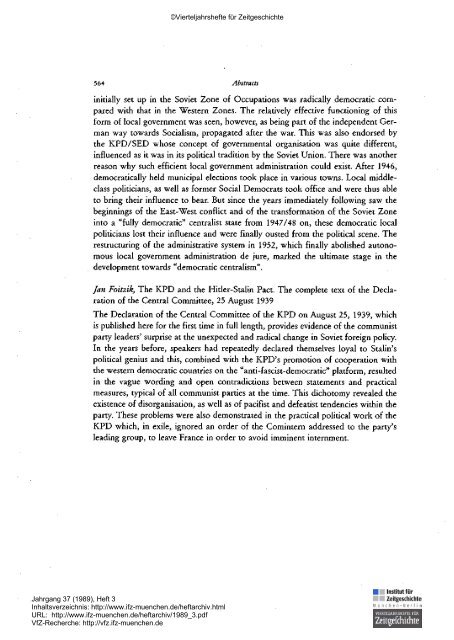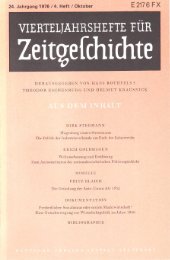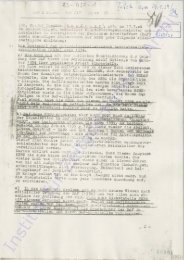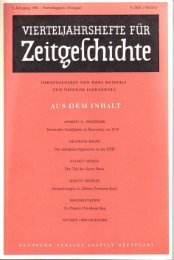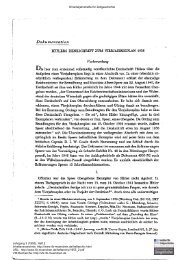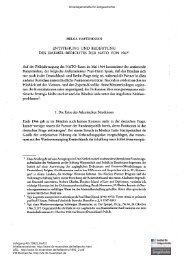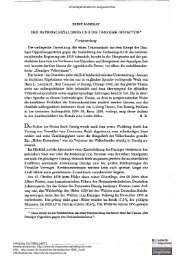Anhang - Institut für Zeitgeschichte
Anhang - Institut für Zeitgeschichte
Anhang - Institut für Zeitgeschichte
Erfolgreiche ePaper selbst erstellen
Machen Sie aus Ihren PDF Publikationen ein blätterbares Flipbook mit unserer einzigartigen Google optimierten e-Paper Software.
564 Abstracts<br />
initially set up in the Soviet Zone of Occupations was radically democratic compared<br />
with that in the Western Zones. The relatively effective functioning of this<br />
form of local government was seen, however, as being part of the independent German<br />
way towards Socialism, propagated after the war. This was also endorsed by<br />
the KPD/SED whose concept of governmental organisation was quite different,<br />
influenced as it was in its political tradition by the Soviet Union. There was another<br />
reason why such efficient local government administration could exist. After 1946,<br />
democratically held municipal elections took place in various towns. Local middleclass<br />
politicians, as well as former Social Democrats took office and were thus able<br />
to bring their influence to bear. But since the years immediately following saw the<br />
beginnings of the East-West conflict and of the transformation of the Soviet Zone<br />
into a "fully democratic" centralist state from 1947/48 on, these democratic local<br />
politicians lost their influence and were finally ousted from the political scene. The<br />
restructuring of the administrative system in 1952, which finally abolished autonomous<br />
local government administration de jure, marked the ultimate stage in the<br />
development towards "democratic centralism".<br />
Jan Foitzik, The KPD and the Hitler-Stalin Pact. The complete text of the Declaration<br />
of the Central Committee, 25 August 1939<br />
The Declaration of the Central Committee of the KPD on August 25, 1939, which<br />
is published here for the first time in full length, provides evidence of the communist<br />
party leaders' surprise at the unexpected and radical change in Soviet foreign policy.<br />
In the years before, speakers had repeatedly declared themselves loyal to Stalin's<br />
political genius and this, combined with the promotion of cooperation with<br />
the western democratic countries on the "anti-fascist-democratic" platform, resulted<br />
in the vague wording and open contradictions between statements and practical<br />
measures, typical of all communist parties at the time. This dichotomy revealed the<br />
existence of disorganisation, as well as of pacifist and defeatist tendencies within the<br />
party. These problems were also demonstrated in the practical political work of the<br />
KPD which, in exile, ignored an order of the Comintern addressed to the party's<br />
leading group, to leave France in order to avoid imminent internment.


